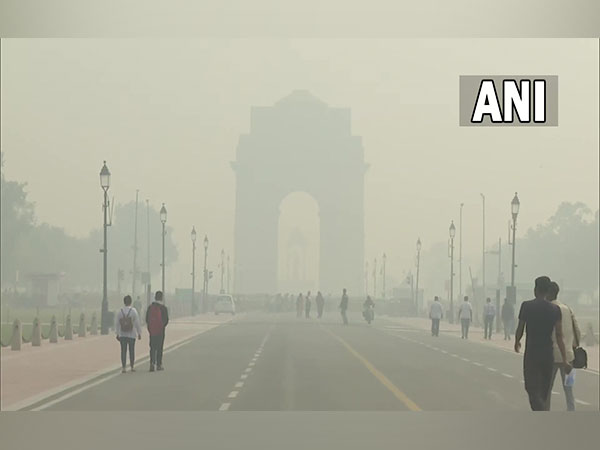Most MCD field workers not aware of national policies formed to improve air quality: Study
It is because of this gap that implementation of policies is hampered, and the impacts continue, he said.The sustained interaction with the MCD officials brought forth the common challenges implementing agencies face on the ground, the study said.While workers are acutely aware of the obstacles, they find themselves ill-equipped to bring meaningful change, it said.The study found that staff members of Urban Local Bodies ULBs have inadequate knowledge and understanding of their roles in pollution mitigation.

- Country:
- India
Around 95 per cent of the Municipal Corporation of Delhi (MCD) officials are aware of air pollution, but the field workers are not familiar with national policies formed to improve air quality, according to a new study by Climate Trends and Earth Root Foundation.
Between October and December 2021, researchers conducted in-depth interviews with staff from MCD to understand their knowledge, awareness and attitude towards air pollution.
Most respondents (94.8 per cent) were aware of the term ''air pollution'' but National Clean Air Programme (NCAP) and City Action Plans (CAPs) aren't common terminologies among staffers, according to the study.
NCAP is a national-level strategy for a 20 per cent to 30 per cent reduction in PM2.5 and PM10 concentration by 2024, with 2017 as the base year for comparison.
The programme covers 132 non-attainment cities, which do not meet the prescribed national ambient air quality standards.
Under NCAP, city-specific action plans have been prepared which include measures for strengthening the air quality monitoring network, reducing vehicular and industrial emissions, and increasing public awareness.
Only about 72.4 per cent of the engineers and 53 per cent of the inspectors were aware of the national policies concerning air pollution, it said.
In its first phase, the study covered two areas - 'West and Najafgarh' in the SDMC region and the NDMC zone -- and included engineers working under the Department of Environment Management Services (DEMS), MCD inspectors, and ground staff.
According to the respondents, the key sources of air pollution were vehicular pollution (99 per cent), construction and road dust (94 per cent) and stubble burning (91.5 per cent).
However, when questioned about technical details, the MCD officials seemed unaware.
The study shows that most respondents associated only respiratory problems, dizziness, and eye irritation as health impacts of air pollution.
Only about 20 per cent of the respondents believed that air pollution could impact the prevalence of diseases such as cancer, heart disease and skin problems.
Research shows that long-term exposure to PM2.5 pollution is associated with illness and early death from various diseases, including ischemic heart disease, lung cancer, chronic obstructive pulmonary disease, lower respiratory infections (such as pneumonia), stroke, type 2 diabetes and adverse birth outcomes.
''Air pollution is one of the biggest health concerns in urban areas. In India, many cities are highly polluted due to fossil fuel-polluting sources such as smokestacks, industries and factories. It also harms our health,'' said Vivek Panwar, Secretary, Earth Root Foundation.
''Our study shows that while urban local bodies are aware of the problems, their staff isn't very aware of its effects on human health and the immediate action they can take to avoid excessive exposure to air pollution. It is because of this gap that implementation of policies is hampered, and the impacts continue,'' he said.
The sustained interaction with the MCD officials brought forth the common challenges implementing agencies face on the ground, the study said.
While workers are acutely aware of the obstacles, they find themselves ill-equipped to bring meaningful change, it said.
The study found that staff members of Urban Local Bodies (ULBs) have inadequate knowledge and understanding of their roles in pollution mitigation. As a result, they have a casual approach towards their work.
The sustained interaction with the MCD officials brought forth the common challenges implementing agencies face on the ground.
While workers are acutely aware of the obstacles, they find themselves ill-equipped to bring meaningful change. The study found that staff members at ULBs have inadequate knowledge and understanding of their roles in pollution mitigation.
As a result, they have a casual approach towards their work.
Aarti Khosla, Director, Climate Trends, said, ''Air pollution is now a problem for the capital city all around the year, and the local government needs to prioritise the issue within its systems.'' ''Civic issues like waste management, broken roads, and sewer lines are the kind of issues MCD is normally held accountable for. Air pollution has to be a part of the broken issues which must be fixed.
''It is as much a civic issue which MCD should address as any other infrastructure issue. At the upcoming MCD elections, there should be a recognition that better coordination and improved accountability mechanisms should be there to ensure our policies are implemented in their truest sense,'' Khosla said.
(This story has not been edited by Devdiscourse staff and is auto-generated from a syndicated feed.)










